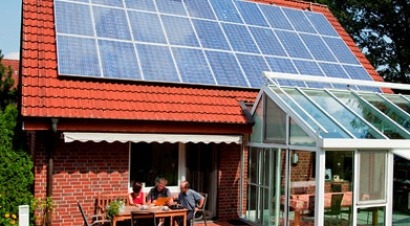
Hundreds of thousands of European citizens will gather at events across the continent to show their support for solar energy during European Solar Days (ESD), demonstrating the huge potential contribution of solar toward meeting EU energy goals.
The events, which will take place in hundreds of locations from Tuesday 1 May to Sunday 13 May, have been designed to help audiences including European policy makers and companies, but particularly individual citizens, to understand the benefits that available solar technology offers them today. Events include exhibitions of solar technologies, open door days, trainings for company staff, street festivities for children, “balloon dropping” and many more.
In addition to the events around Europe, which expect to welcome more than 500 000 visitors across 16 European countries, a special event for EU political and industry stakeholders will take place in Brussels on Thursday, 10 May. This roundtable, entitled, “Solar Citizens: People in Charge of their energy future”, will highlight the policy changes necessary to oversee the next phase of solar energy integration in Europe.
Over the course of the last decade, as Europe’s energy market has diversified, solar energy has become a crucial source of clean, decentralised energy for many households. By the end of 2011, over 50 gigawatts of PV systems had been installed in Europe – enough to supply over 15 million households with electricity –while approximately 26 gigawatts (thermal) had been installed in 2011, which is enough to provide over 12.5 million households with an average sized solar thermal system for domestic hot water production. More and more, European consumers are choosing to minimise their reliance on traditional and non-renewable energy sources, and to reduce their environmental footprint as well as their energy bills.
"A strong and growing demand for solar energy is a key factor for developing an innovative and sustainable Europe. Solar thermal and photovoltaic are key industries for the European economy and reducing CO2 emissions,” comments Xavier Noyon, Secretary General of the European Solar Thermal Industry Federation (ESTIF).
Reinhold Buttgereit, Secretary General of the European Photovoltaic Industry Association (EPIA), adds: “Solar energy offers huge societal benefits, including far greater levels of sustainability. This clean and reliable energy source gives Europeans the choice to reduce their energy bills while helping to achieve the continent’s ambitious energy and climate policy targets.”
Europe’s Energy Roadmap 2050 and the EU Energy 2020 targets commit EU policy makers to reducing greenhouse gas emissions by 80-95% below 1990 levels by 2050, and to increasing the share of renewable energies to 20% by 2020. Under the right policy and market conditions solar electricity could account for up to 12% of the EU power demand by 2020 by itself. At the same time, solar thermal could meet up to 3.6% of the low temperature demand in the EU.
For additional information:

